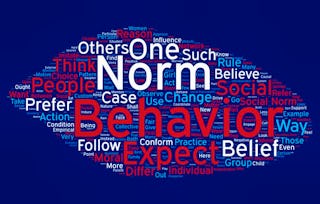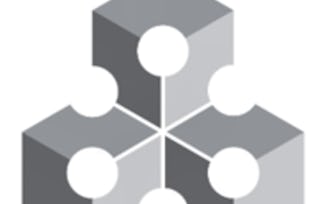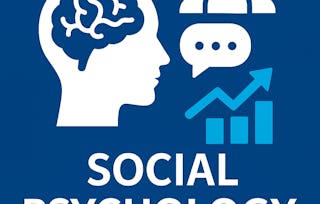This is a course on social norms, the rules that glue societies together. It teaches how to diagnose social norms, and how to distinguish them from other social constructs, like customs or conventions. These distinctions are crucial for effective policy interventions aimed to create new, beneficial norms or eliminate harmful ones. The course teaches how to measure social norms and the expectations that support them, and how to decide whether they cause specific behaviors. The course is a joint Penn-UNICEF project, and it includes many examples of norms that sustain behaviors like child marriage, gender violence and sanitation practices.


Social Norms, Social Change I


Social Norms, Social Change I

Instructor: Cristina Bicchieri
Access provided by Mojatu Foundation
119,031 already enrolled
2,076 reviews
Skills you'll gain
Details to know

Add to your LinkedIn profile
9 assignments
See how employees at top companies are mastering in-demand skills

There are 4 modules in this course
Welcome Social Norms, Social Change. This course aims to give you the tools to understand, measure, and change collective practices. This module focuses on two of the basic building blocks the theory of social norms is built on: the distinction between interdependent and independent behavior, and empirical expectations.
What's included
13 videos7 readings2 assignments2 discussion prompts
This module adds two more of the basic building blocks of the theory: normative expectations and personal normative beliefs. Although both are "normative" — that is, both have a component dealing with a "should" — there are important differences between normative expectations and personal normative beliefs.
What's included
9 videos6 readings2 assignments2 discussion prompts
In this module we cover two topics: conditional preferences and social norms. Conditional preferences are the final basic building block of the theory of social norms. After studying all these building blocks, we can finally assemble them to understand what it means for a collective practice to be a social norm.
What's included
11 videos4 readings2 assignments2 discussion prompts
This module covers two important topics: pluralistic ignorance and norm measurement. Sometimes individuals endorse their social norms, but sometimes they do not. Knowing when a norm is endorsed is crucial for intervention. But how do we know we are dealing with a social norm or whether it's endorsed? Measurement answers that question.
What's included
12 videos9 readings3 assignments2 discussion prompts
Instructor

Why people choose Coursera for their career

Felipe M.

Jennifer J.

Larry W.

Chaitanya A.
Learner reviews
- 5 stars
73.07%
- 4 stars
19.94%
- 3 stars
4.96%
- 2 stars
1.05%
- 1 star
0.96%
Showing 3 of 2076
Reviewed on Jan 13, 2024
It's a challenging but fulfilling course that enables you to fully understand the world a little bit better. Make sure to take notes, plenty of notes if you have no memory like me!
Reviewed on Jan 6, 2017
This is an extremely useful course. There is an effective blend of lecture, quizzes, case studies, essays, and student discussion. The content is highly relevant. I highly recommend this course.
Reviewed on Apr 27, 2020
Helpful framework for determining how to shift social norms. The detail in which the instructor teases out the nuanced ways to assess why individuals act the way they do is very helpful
Explore more from Social Sciences

University of Pennsylvania

University of Pennsylvania

University of Pennsylvania

O.P. Jindal Global University



